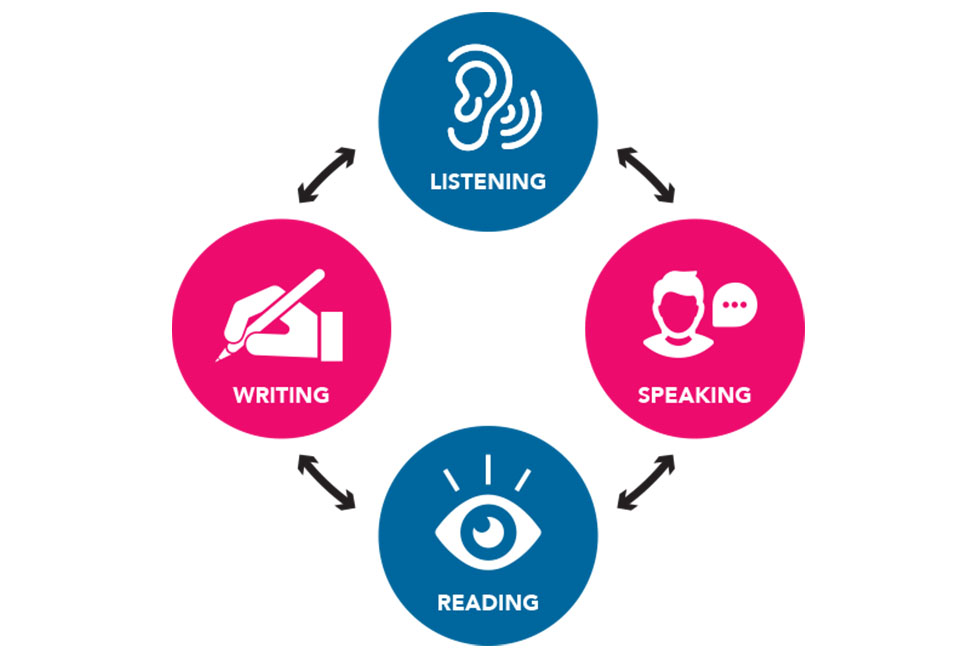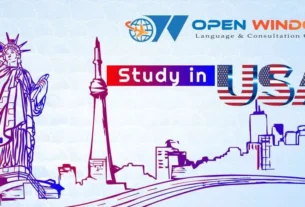Study in Canada
Study in Canada can be an enriching and fulfilling experience for international students. Canada is home to many world-renowned universities, which offer high-quality education and research opportunities in a diverse range of fields.
To study in Canada, international students typically need to obtain a study permit, which is issued by the Canadian government. To apply for a study permit, students must have a letter of acceptance from a designated learning institution (DLI), prove their proficiency in English or French, and demonstrate sufficient funds to cover tuition fees and living expenses.
The Canadian education system is divided into primary education, secondary education, and post-secondary education. Post-secondary education in Canada includes colleges, technical schools, and universities. There are two main types of degrees offered by Canadian universities: undergraduate degrees, which typically take four years to complete, and graduate degrees, which include Master’s degrees and PhDs.
International students in Canada can also take advantage of part-time work opportunities, which can help offset the cost of tuition fees and living expenses. Students can work up to 20 hours per week during the academic year and full-time during scheduled breaks.
Overall, studying in Canada offers international students a unique opportunity to experience a high-quality education in a welcoming and multicultural environment.
Why Study in Canada?

1. Canada takes education seriously
Did you know that Canada is the world’s most educated country? In fact, over half of its residents have university degrees. It must be pretty interesting to be a student there, eh?
2. Canadian universities are among the best education institutions
Some of the top international universities and colleges are located in Canada, and students from all over the world have come to join the biggest names in their field.
Experts in Journalism, Politics, Medicine, and Technology got their start at universities like the University of Toronto and McGill University; and you’ll have the chance to work alongside some of the sharpest minds in the world.
3. Flexibility through education variety
Canada offers an interesting variety of higher education institutions: universities, colleges, polytechnics, and cégeps (vocational schools). Depending on the goals you have, or what you’re looking for, you may want to select the institutional model that fits your needs.
4. Highly regarded diplomas
Canadian college and university graduates are highly-valued on the job market, and people who study there have been able to find great jobs in any field they’re interested in.
5. Canadian culture embraces diversity
No matter who you are, where you come from, or what you want to study, Canadians are ready to welcome you warmly. The North American country invests a lot of effort to ensure international students are safe, treated fairly, and happy to take part in the Canadian education and lifestyle.
How to Apply in Canada
If you’ve decided to study a Master’s degree at a university in Canada, you will have to gather the right documents to prove that you fit the university requirements. Provide complete personal information, previous qualifications, financial information, and a personal statement.
What documents do I need to provide to apply in Canada?
Before you get too enthusiastic, let’s check what documents you will have to prepare to study a Master’s degree in Canada. So, take a pen and paper and write down:
- A Bachelor’s degree;
- The completed application form;
- CV;
- A nicely-worded letter of intent;
- Proof of English (or French) proficiency;
- Evidence that you can support yourself financially during the whole study period;
- Two letters of reference, that say you are ready to study that particular Master/PhD.
The list might seem long, but rest assured that, if you start early, you can collect them all in no time.
Prove your English (or French) skills

Ah, but there’s a catch. You can either prove your English skills, OR your French skills. Certain regions in Canada are francophone, so, if you go there, the majority, if not all degrees, will be taught in French.
So, research if the Master’s programme you picked is in English, and, if it is, then be sure to take:
- IELTS
- C1 Advanced
- TOEFL
- CAEL (Canadian Academic English Language Assessment);
- CanTEST (Canadian Test of English for Scholars and Trainees);
- MELAB (Michigan English Language Assessment Battery).
Application deadlines for Canada
Depending on when you plan on starting your studies in Canada, know that there are two application sessions. That’s why, if you plan on starting in winter, the application deadline is the 1st of September, while the one for summer enrolments is the 1st of March.
Of course, as you probably expect, these deadlines depend on the university and the programme, so be sure to double-check if these deadlines also apply to you, as well.
Living in Canada

Let’s take a closer look at the average tuition and living expenses in Canada:
Average university tuition fees study in Canada
In Canada, the fees vary based on your level, university, discipline, and country of origin. Private universities are more expensive than public ones, but overall, tuition fees for international students range between:
- 1,000–30,000 CAD/year for Bachelor’s degrees
- 1,000–65,000 CAD/year for Master’s degrees
Cost of Living in Canada
Compared to the rest of the world, Canada can be rather pricey. Especially in major cities, you may find that transportation and food have higher price stickers than most other countries.
You should prepare at least 800–1,500 CAD per month for most cities. In Vancouver or Calgary, living costs can reach 2,000 CAD per month.
Here’s a breakdown of some of the average costs for various things in Canada:
- Rent (private apartment): 650–1,200 CAD/month
- Utilities: 230–270 CAD/month
- Pair of jeans: 64 CAD
- Monthly transportation card/ticket: 97 CAD
- Bottle of wine: 15 CAD
- Loaf of bread: 2.90 CAD
- Milk: 2.50 CAD
- Ticket to the cinema: 14 CAD
Work while study in Canada

International students in Canada are allowed to work part-time while they study, as long as their study permit allows it. The amount of hours you can work per week depends on your program and the type of work you do.
Students enrolled in a full-time academic, professional or vocational program at a designated learning institution (DLI) can work up to 20 hours per week during regular academic sessions and full-time during scheduled breaks, such as winter and summer holidays. Some graduate programs may also allow students to work as research or teaching assistants for additional income.
There are many part-time job opportunities available for international students in Canada, including positions in retail, hospitality, customer service, and administration. Universities also often offer part-time jobs on campus, such as library assistants, research assistants, and student ambassadors.
It’s important to note that the income from part-time work is not intended to cover the full cost of living expenses in Canada. It’s recommended that students have sufficient funds to support themselves during their studies, including tuition fees and living expenses, without relying solely on part-time work.
When looking for a part-time job, you can search online job boards, university job portals, or visit local businesses in person to inquire about vacancies. You should also make sure to check your study permit conditions and confirm with your university’s international student office to ensure that you are allowed to work and to avoid any permit violations.
Canada At a Glance
| Course Duration | Intake | Application Fee | Requirements |
| 2 Years (Master’s) 1 Year (PG Diploma) | January, May, September | 70 To 300 (CAD) | IELTS/TOEFL, Academics-Above 65% (Master’s) IELTS, Academics-Above 50%(PG Diploma) |
| Language Proficiency | Tution Fee (Yearly) | Living Cost (Yearly) | Visa Application |
| IELTS- 6+, TOEFL-80+, PTE-60+ | 16000 To 60000 (CAD) | 10000 To 12000 (CAD) | 150 (CAD) |
| Air Ticket | Processing Time | Part Time Work | Post Study Work Permit |
| 80000 To 170000 (BDT) | 9-12 Months (Master’s) 8 Months (PG Diploma) | 20 Hrs (per Week) | 36 Months (Master’s) 36 Months (PG Diploma) |
Our Affiliated University List
| Sr No | University Name | City |
| 1 | McGill University’s School of Continuing Studies | Montreal, Quebec |
| 2 | Queen’s University | Kingston, Ontario |
| 3 | University of Victoria, | British Columbia |
| 4 | Toronto Metropolitan University, | Toronto, Ontario |
| 5 | York University, School of Continuing Education, | Toronto, Ontario |
| 6 | Dalhousie University, | Halifax, Nova Scotia |
| 7 | Dalhousie University, | Halifax, Nova Scotia |
| 8 | University of Manitoba, | Winnipeg, Manitoba |
| 9 | Memorial University of Newfoundland, | St. John’s, Newfoundland and Labrador |
| 10 | University of Windsor, | Windsor, Ontario |
| 11 | University of New Brunswick, | Fredericton, New Brunswick |
| 12 | University of Regina, | Regina, Saskatchewan |
| 13 | Brock University, | St. Catharines, Ontario |
| 14 | Wilfrid Laurier University, | Waterloo, Ontario |
| 15 | University of Lethbridge, | Lethbridge, Alberta |
| 16 | Lakehead University, | Thunder Bay, Ontario |
| 17 | Lakehead University through Georgian College, | Barrie, Ontario |
| 18 | University of Winnipeg, Winnipeg, | Manitoba |
| 19 | University of Prince Edward Island, | Charlottetown, Prince Edward Island |
| 20 | Acadia University, | Wolfville, Nova Scotia |
| 21 | University of Northern British Columbia, | Prince George, British Columbia |
| 22 | Ontario Tech University, | Oshawa, Ontario |
| 23 | Mount Saint Vincent University, | Halifax, Nova Scotia |
| 24 | Trent University, | Peterborough, Ontario |
| 25 | Trinity Western University, | Langley, British Columbia |
| 26 | Royal Roads University, | Victoria, British Columbia |
| 27 | Fairleigh Dickinson University, | Vancouver, British Columbia |
| 28 | Simon Fraser University through Fraser International College, | Burnaby, British Columbia |
| 29 | Wilfrid Laurier University through Wilfrid Laurier International College, | Waterloo, Ontario |
| 30 | University of Manitoba through International College of Manitoba, | Winnipeg, Manitoba |
| 31 | Toronto Metropolitan University through Toronto Metropolitan International College, | Toronto, Ontario (Only UG) |
| 32 | Vancouver Island University, | Nanaimo, British Columbia |
| 33 | St. Thomas University, | Fredericton, New Brunswick |
| 34 | University Canada West, | Vancouver, British Columbia |
| 35 | New York Institute of Technology, | Vancouver, British Columbia |
| 36 | Nipissing University, | North Bay, Ontario |
| 37 | The King’s University, | Edmonton, Alberta |
| 38 | Adler University, | Vancouver, British Columbia |
| 39 | King’s University College (University of Western Ontario), | London, Ontario |
| 40 | Cape Breton University, | Sydney, Nova Scotia |
| 41 | Capilano University, | North Vancouver, British Columbia |
| 42 | Kwantlen Polytechnic University, | Surrey, British Columbia |
| 43 | University of the Fraser Valley, | Abbotsford, British Columbia |
| 44 | Crandall University, | Moncton, New Brunswick |
| 45 | Seneca College, | Toronto, Ontario |
| 46 | George Brown College, | Toronto, Ontario |
| 47 | Sheridan College, | Oakville, Ontario |
| 48 | Bow Valley College, | Calgary, Alberta |
| 49 | Douglas College, | New Westminster, British Columbia |
| 50 | Southern Alberta Institute of Technology (SAIT), | Calgary, Alberta |
| 51 | Niagara College, | Welland, Ontario |
| 52 | Niagara College, | Toronto, Ontario |
| 53 | Fanshawe College, | London, Ontario |
| 54 | Fanshawe College @ ILAC Toronto, | Ontario |
| 55 | Durham College, | Oshawa, Ontario |
| 56 | Fleming College, | Peterborough, Ontario |
| 57 | Fleming College Toronto, | Ontario |
| 58 | North Island College, | Vancouver Island, BC, Canada |
| 59 | Georgian College, | Barrie, Ontario |
| 60 | Georgian@ILAC, | Toronto, Ontario |
| 61 | Loyalist College, | Toronto, Ontario |
| 62 | Sault College of Applied Arts and Technology, | Sault Ste. Marie, Ontario |
| 63 | Cambrian College, | Sudbury, Ontario |
| 64 | Manitoba Institute of Trades and Technology, | Winnipeg, Manitoba |
| 65 | Centennial College, | Toronto, Ontario |
| 66 | Conestoga College, | Kitchener, Ontario |
| 67 | College of New Caledonia, | Prince George, British Columbia |
| 68 | Cégep Marie-Victorin, | Montreal, Quebec |
| 69 | Saskatchewan Polytechnic, | Saskatoon, Saskatchewan |
| 70 | LaSalle College, | Montreal and Vancouver |
| 71 | College of the Rockies, | Cranbrook, British Columbia |
| 72 | Lethbridge College, | Lethbridge, Alberta |
| 73 | Northern College, | Timmins, Ontario |
| 74 | St. Lawrence College, | Kingston, Ontario |
| 75 | Lambton College, | Sarnia, Ontario |
| 76 | Olds College, | Olds, Alberta |
| 77 | Selkirk College, | Castlegar, British Columbia |
| 78 | Assiniboine Community College, | Brandon, Manitoba |
| 79 | Keyano College, | Fort McMurray, Alberta |
| 80 | Canadore College, | North Bay, Ontario |
| 81 | Acsenda School of Management, | Vancouver, British Columbia |
| 82 | Le Cordon Bleu, | Ottawa, Ontario |
| 83 | Alexander College, | Vancouver, British Columbia |
| 84 | Vancouver Film School, | Vancouver, Canada |
| 85 | Northern College at Pures-Toronto, | Toronto, Ontario |
| 86 | Cégep de la Gaspésie et des Iles, | Gaspé, Quebec |
| 87 | Vancouver Community College, | Vancouver, British Columbia |
| 88 | British Columbia Institute of Technology, | Burnaby, British Columbia |
| 89 | Medicine Hat College, | Alberta, Canada |
| 90 | NorQuest College, | Edmonton, Alberta |
| 91 | Coquitlam College, | Coquitlam, British Columbia |
| 92 | Coast Mountain College, | Terrace, British Columbia |
| 93 | Justice Institute of British Columbia, New Westminster, | British Columbia |
| 94 | Vancouver Aviation College, Pitt Meadows, | British Columbia |



3 thoughts on “Study in Canada”